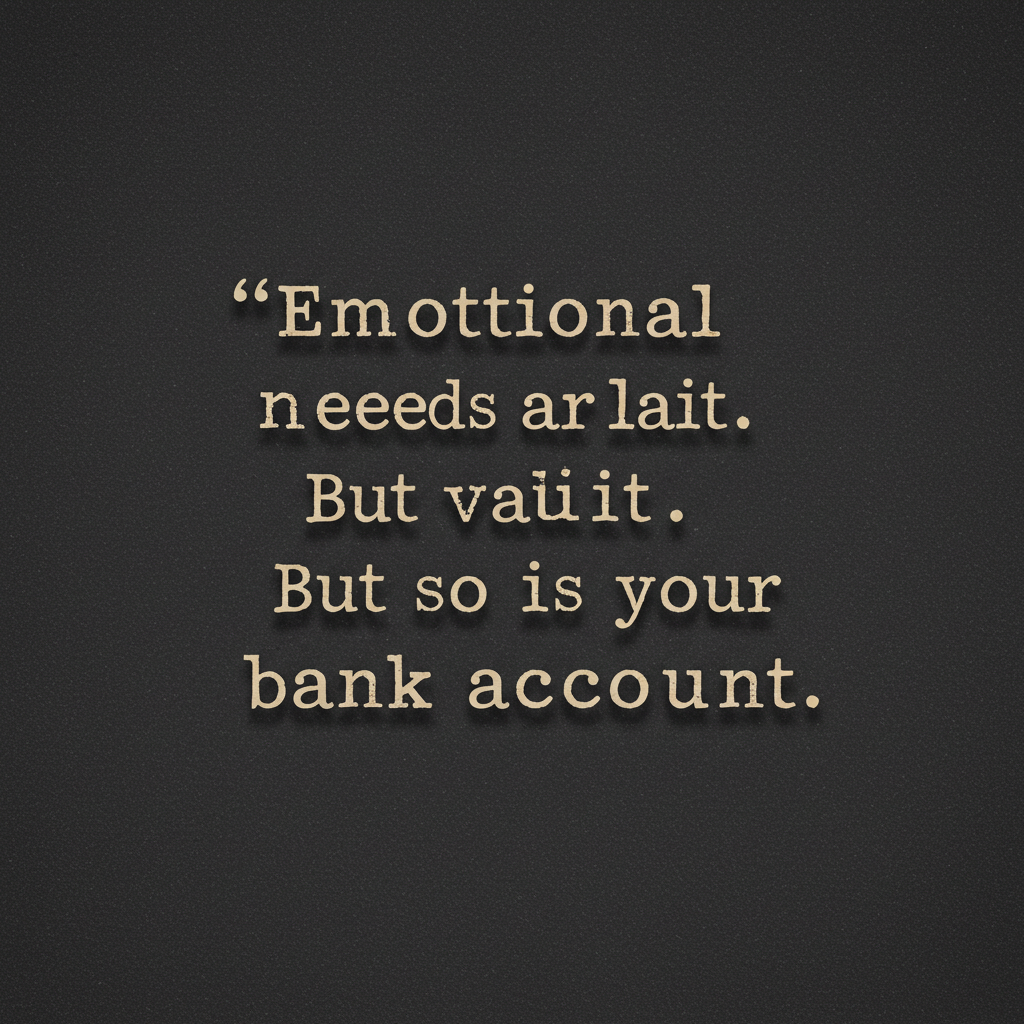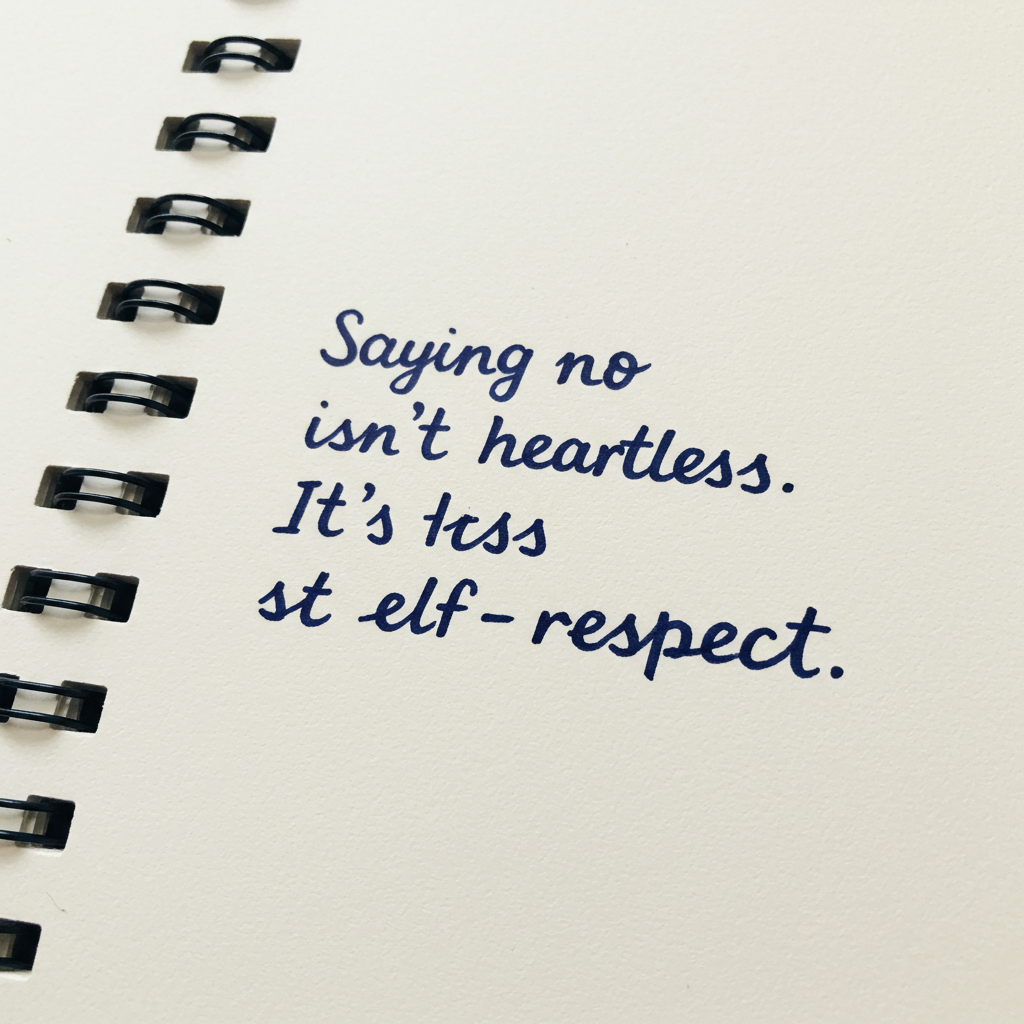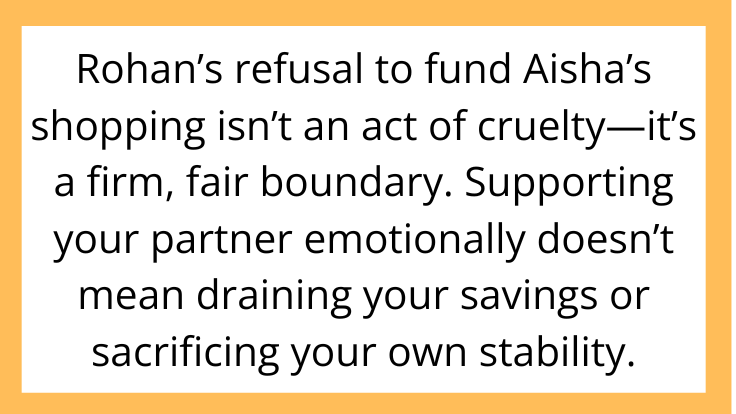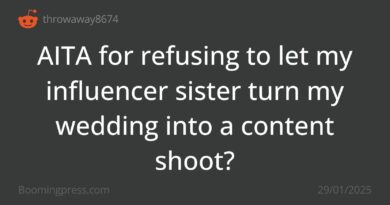AITAH for Refusing to Pay for My Girlfriend’s Shopping After She Quit Her Job to “Find Herself”?
Relationships often face challenges when expectations clash—especially when finances enter the picture. In today’s AITAH-based blog post, we explore a scenario where independence, entitlement, and emotional support collide. A boyfriend’s refusal to financially support his girlfriend’s lifestyle has sparked an intense debate online. Is he being unsupportive—or setting a healthy boundary?
Let’s dive into the drama.
The Story: When Self-Discovery Comes with a Price Tag

A 27-year-old man—let’s call him Rohan—posted on r/AITAH to ask for judgment on a situation involving his girlfriend of two years, Aisha. Until recently, they both worked full-time jobs and split their living expenses fairly. Things were smooth, and they even discussed moving in together long term.
But everything changed when Aisha decided to quit her job.
She said she felt “burnt out and disconnected” and needed time to “find herself.” Rohan, surprised but supportive, encouraged her to take a break—but reminded her that they would need to manage their finances carefully during this period.
Aisha agreed. For the first month, she was mostly home, journaling, reading, and attending meditation workshops. Rohan covered more groceries and utility bills during that time.
But soon, things escalated.
The Turning Point: Shopping Sprees and Silent Expectations

Without warning, Aisha began making regular online purchases—clothes, skincare, home decor, even a pricey air purifier. She didn’t discuss the expenses with Rohan and began casually using his card “just for now,” assuming he’d cover things since she wasn’t earning.
Rohan pushed back.
“I’m happy to support you while you take care of yourself,” he told her. “But I didn’t agree to fund your lifestyle.”
Aisha was hurt. She accused Rohan of not being a real partner, claiming that she’d do the same for him if the roles were reversed. She even said that he was being “capitalistic and cold” for not helping her during an emotional crisis.
Feeling frustrated and guilty, Rohan turned to Reddit: AITAH for refusing to pay for her shopping when she chose to stop working?
The Arguments: Support vs. Sponsorship

Why Rohan Might Be Justified
Rohan never signed up to be Aisha’s financial sponsor. Supporting a partner through hard times doesn’t have to mean funding every purchase—especially ones that are unnecessary or extravagant.
His boundaries were clear: he was willing to carry extra financial weight for essentials, not for luxury items. Just because someone is taking time to “find themselves” doesn’t mean their partner must foot the bill for indulgent spending.
Why Aisha Might Feel Betrayed
From Aisha’s perspective, she opened up about her emotional burnout and trusted her partner to support her through it. She likely views his financial pushback as a lack of emotional support and compassion.
She may also feel that relationships should be built on mutual care—and that includes financial help when one partner is vulnerable.
But is quitting your job without a plan—and assuming financial support—an act of vulnerability, or irresponsibility?
Reddit’s Verdict: A Hard “Not the Villain”

The majority of Reddit commenters backed Rohan. Here’s what they had to say:
-
“Supporting your partner doesn’t mean bankrolling their shopping addiction.”
-
“She quit her job voluntarily. That’s different from being laid off or sick.”
-
“Healthy relationships include boundaries. She’s violating them.”
Many also pointed out that Aisha’s spending habits didn’t reflect someone in crisis—they reflected someone used to comfort and expecting others to maintain it.
However, a small group empathized with Aisha. One user commented:
-
“It’s tough to heal when your partner makes you feel like a burden.”
Still, even sympathetic voices agreed: communication and consent are key. You can’t assign someone the role of provider without their agreement.
The Financial Elephant in the Room: Emotional Labor vs. Money

This situation also exposes a larger issue in relationships: the blurry line between emotional labor and financial expectation. While it’s valid to seek support from a partner during personal growth, it’s not fair to expect financial support without discussion and mutual agreement.
This isn’t just about money—it’s about respect, transparency, and trust.
How They Could Move Forward

What Rohan Could Do:
-
Reassure Aisha that he supports her healing journey, emotionally.
-
Offer to help set a realistic budget or timeline for her break.
-
Establish clear financial boundaries—what he is and isn’t comfortable paying for.
What Aisha Needs to Consider:
-
Reflect on whether she communicated her expectations clearly.
-
Consider part-time work or freelancing to contribute financially.
-
Understand that healing and self-discovery shouldn’t come at someone else’s expense.
Final Thoughts: AITA? No—Just Setting Boundaries

Rohan’s refusal to fund Aisha’s shopping isn’t an act of cruelty—it’s a firm, fair boundary. Supporting your partner emotionally doesn’t mean draining your savings or sacrificing your own stability.
In every relationship, especially where money is involved, communication is everything. Support is beautiful—but it has to be mutual, consensual, and sustainable.



